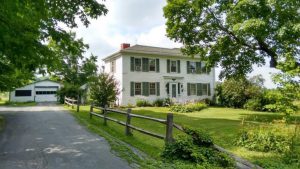 My mother, in the process of reorganizing her office, recently gave me a stack of family pictures and documents. I had already seen many of these photos of her parents and grandparents, but there was one that was unfamiliar and amazing: a large photo of my grandfather’s Bar Mitzvah dinner held on 16 November 1913.
My mother, in the process of reorganizing her office, recently gave me a stack of family pictures and documents. I had already seen many of these photos of her parents and grandparents, but there was one that was unfamiliar and amazing: a large photo of my grandfather’s Bar Mitzvah dinner held on 16 November 1913.
I didn’t even know that my grandfather had a Bar Mitzvah, but Herman Oscar Bornstein, born 12 November 1900, was celebrating at what looked like a very fancy dinner. Continue reading A family celebration








